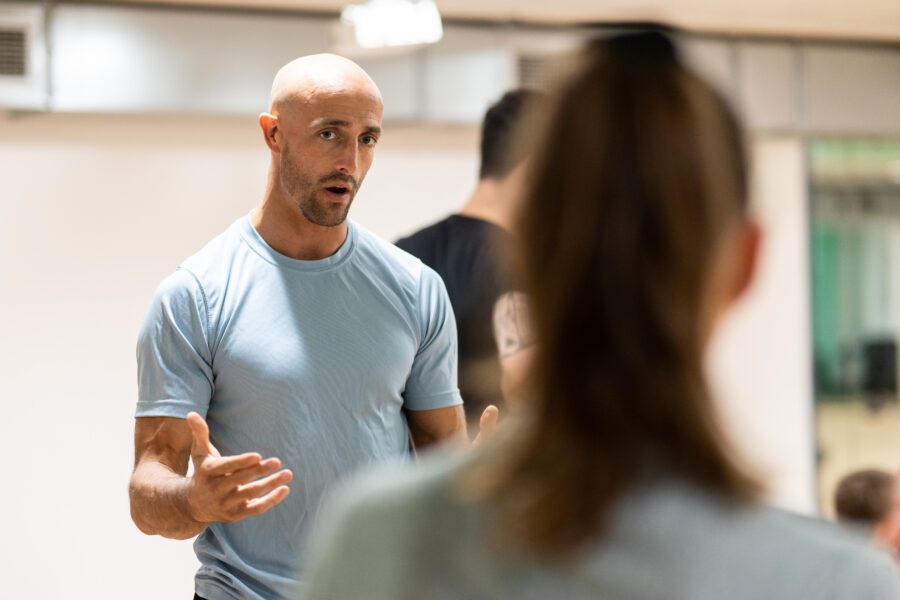
The salary of a personal coach varies depending on the location they are working. In affluent parts of London, for example, one-to-one sessions with clients can cost PS80 or even PS100 per hour. The hourly average wage for a personal trainer in the UK is around PS25 and PS35. A trainer who lives in an area that is wealthy can earn between PS40,000-60,000.
Your potential to earn
You can make a great living as a personal training professional. There are several factors to consider, such as location and experience. One example is that clients might be more willing to pay less for services in smaller cities than they are in larger ones. However, there may be a greater demand for personal coaching services in some cities than the supply.

Localization
The location of a personal coach's salary will affect the wage. When calculating the wage of a personal trainer, there are many things to take into account. A trainer's market influence and benefits will impact the amount of wages and benefits that they are eligible for.
Incentives
Offer incentives to your clients, if you're in personal training. These bonuses can include cash bonuses as well as free meals. For signing on new clients, achieving training goals, selling higher-end packages, or for signing up, bonuses are often offered. These bonuses are based on your monthly production. This is the amount that you make before taxes. To cover their expenses, some companies may deduct as much as 29% from your commission checks.
Hourly rate
The hourly rate of a personal trainer can range widely, from $25 to $50 an hour. The most common rate is $40 to $50 for a one-hour consultation. The trainer's reputation as well as the number of clients he has are usually factors that determine the rate. A successful trainer may earn up to three to nine consultation calls per semaine, which equals to $23,400 per annum.
Certificates
A career as a personal trainer requires education and certification. A certified personal trainer (CPT) will assist clients in reaching their personal fitness goals. You will also create an exercise program that targets improving client's overall health and fitness. You can also help clients with nutrition, weight control, or lifestyle issues. You can work in a gym or at home with clients. Some personal trainers are also able to sell products and memberships.

Incentives for online training
You can offer incentives for new members to help you attract clients to your online training business. Incentives can include shirts and sports equipment, coupons for lunch, movie tickets, shopping sprees, and gift cards. Incentives can also be given to your staff members for referring new members. These programs can dramatically increase your income potential.
FAQ
Do I gain weight from exercising?
Not at all. Exercising can help you maintain your current weight. Regular exercise will help you build muscle and boost your metabolism. This will allow you to burn more calories every day. This means your body won’t store as much weight.
What happens if I don't get enough sleep?
If you don't get enough sleep, your brain doesn't receive the signals needed to regulate hormones and chemicals in regulating appetite and metabolism. As a result, you may overeat and gain weight. Lack of sleep also increases stress levels, which can lead to overeating.
What is Nutrition Good for?
By providing all the nutrients necessary for growth and development, nutrition helps your body function well. To ensure that your body receives adequate nutrition, it is best to eat a balanced meal with lots of fruits and vegetables, lean protein, whole grain, as well as healthy fats.
Can I exercise after eating?
It all depends on the type of exercise that you are doing. Avoid strenuous exercise after meals as it can cause stomach cramps. Light aerobic activities such brisk biking and walking are better.
Do I need heat before exercising?
Warming up before a sport can help reduce muscle soreness and increase performance. There are many methods you can use to warm up, including running, jumping rope and stretching. Start slowly and gradually increase your pace and intensity.
What is Cardio Exercises?
Cardiovascular exercise is any activity that requires your heart and lung to work harder than normal. Examples include jogging, swimming, bicycling, rowing, and dancing. These activities burn fat and raise your metabolism. They can also help you stay fit by strengthening your heart and lungs.
Statistics
- Globally, 81% of adolescents aged 11-17 years were insufficiently physically active in 2016. (who.int)
- One study showed that adults who watch more than 4 hours of television daily had an 80% higher risk of death from cardiovascular disease. (heart.org)
- Adolescent girls were less active than adolescent boys, with 85% vs. 78% not meeting WHO recommendations of at least 60 minutes of moderate to vigorous intensity physical activity per day. (who.int)
- Globally, 28% of adults aged 18 and over were not active enough in 2016 (men 23% and women 32%). (who.int)
External Links
How To
How to Burn Belly Fats Faster
Belly Fat is usually seen as a problem when we want to lose weight. However, Belly Fat can be beneficial if you really think about it. It's the amount of fat stored around your stomach that protects your organs from getting damaged. Let's find out how to lose belly fat quickly.
The main factors that lead to body fat storage are stress and lack exercise. The cortisol hormone stimulates stress which makes us hungry. Cortisol increases insulin levels in our blood. The insulin then stores extra calories as fat. Insufficient sleep can lead to an increase in appetite and adrenaline release. These extra calories are broken down through exercise.
There are many options to reduce belly weight. Any one of these can be tried, depending on how much you have to spend. These are some great tips to help you lose belly fat fast.
-
Reduce the amount of food you eat. Don't eat three large meals at once. This will result in fewer calories.
-
Drink plenty of fluids. Water flushes out toxins, and keeps your body hydrated. Drinking water before meals will help you feel fuller for longer, so you don't overeat.
-
Avoid unhealthy snacks. If you're looking for quick fixes, snack foods like chips, cookies, candies, etc. It might sound tempting. These sweet treats can be tempting, but they are high in empty calories and sugar. Instead, choose healthy alternatives like fruits, veggies, nuts, seeds, and whole grains.
-
Strength training should be performed at least 3 times per week. Strength training builds muscle mass and burns more calories when you're not working out. Strength training strengthens bones, muscles and ligaments. It can also improve the heart, lungs, joints, and other body systems.
-
Stretching and walking are good habits. Stretching is a great way to increase flexibility and mobility. This helps reduce back pain. Walking can help you burn calories.
-
Reduce alcohol intake. Reduce alcohol intake. Alcohol is a waste of calories and has no nutritional value.
-
Lose weight gradually. Your current weight is the first step to losing weight. Then, add 5% to 10% to your body weight to get your ideal weight. Once you have determined your ideal weight, you can start to reduce your calorie intake by 500-1000 calories per day until you reach it.
-
Avoid processed foods. These foods contain high levels of sugar, salt, and preservatives. Processed foods are often very convenient but don't provide enough nutrients to keep you healthy.
-
Don't skip breakfast! Eating breakfast improves concentration, memory, and energy level. Protein (like eggs), fiber and complex carbohydrates (like oatmeal) should be included in breakfast.
-
Have regular bowel movements. Constipation or irregularity can lead to gas and bloating. Drink plenty of water to prevent gas and fiber ingestion.